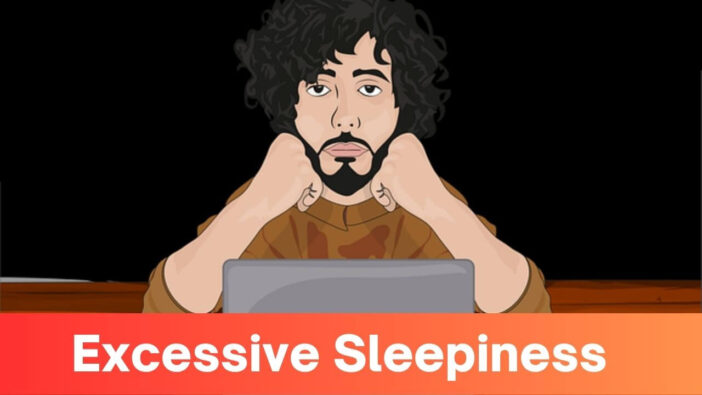
Excessive sleepiness can significantly impact our productivity, focus, and overall well-being in the workplace. It is a common issue faced by many individuals, leading to decreased performance, increased errors, and even potential safety hazards.
This article aims to provide a comprehensive understanding of excessive sleepiness and its effects, while offering practical solutions to overcome this challenge in the workplace.
Understanding Excessive Sleepiness
Excessive sleepiness refers to an overwhelming desire to sleep during the daytime, despite having an adequate amount of sleep at night. It can be caused by various factors, including sleep disorders, medical conditions, lifestyle choices, and poor sleep quality.
Some individuals may experience occasional sleepiness due to factors like inadequate rest, while others may suffer from chronic sleepiness, which can significantly impact their daily lives.
Effects of Excessive Sleepiness in the Workplace
Decreased Productivity
Excessive sleepiness can lead to a decline in productivity, making it difficult to concentrate, complete tasks efficiently, and maintain consistent performance throughout the day. The ability to think critically and make sound decisions may also be compromised.
Increased Errors and Accidents
Sleep-deprived individuals are prone to making mistakes, whether in manual or cognitive tasks. This can have serious consequences, particularly in high-risk industries where accuracy and alertness are crucial.
Impaired Communication and Collaboration
Excessive sleepiness can hinder effective communication and collaboration among team members. It may lead to difficulties in expressing ideas, listening actively, and participating in discussions, ultimately affecting teamwork and synergy.
Negative Impact on Health and Well-being
Prolonged sleepiness can contribute to a range of health issues, including obesity, cardiovascular problems, weakened immune system, and mental health disorders like anxiety and depression. Moreover, it can disrupt the balance between work and personal life, leading to increased stress and reduced overall well-being.
Effective Ways to Overcome Excessive Sleepiness
Prioritize Quality Sleep
Establishing a consistent sleep routine and ensuring sufficient sleep duration is crucial. Do 7-9 hours of uninterrupted sleep every night and raise a sleep-friendly atmosphere by reducing noise, electronic distractions, and light.
Optimize Your Work Environment
Make adjustments to your workspace to promote wakefulness. Ensure proper lighting, maintain comfortable temperature levels, and consider using ergonomic furniture to prevent physical discomfort that may contribute to sleepiness.
Engage in Physical Activity
Regular exercise can enhance alertness, boost energy levels, and improve sleep quality. Incorporate physical activity into your daily habit, whether it’s through structured workouts, brisk walks, or stretching breaks throughout the day.
Practice Mindfulness Techniques
Incorporate relaxation techniques such as deep breathing exercises, meditation, or yoga into your daily habit. These practices can help reduce stress, improve focus, and increase overall mental well-being.
Opt for Healthy Eating Habits
Proper nutrition plays a vital role in maintaining optimal energy levels throughout the day. Avoid heavy, sugary meals that can cause post-meal drowsiness. Instead, opt for balanced meals with whole grains, fruits, vegetables, and lean proteins.
Commonly Asked Questions about Excessive Sleepiness
How can I determine if I have a sleep disorder causing excessive sleepiness?
It is recommended to consult a medical practitioner who specializes in sleep medicine. They can assess your symptoms, medical history, and may recommend a sleep study to diagnose any underlying sleep disorders.
Can excessive sleepiness be a symptom of other medical conditions?
Yes, excessive sleepiness can be associated with medical conditions such as sleep apnea, narcolepsy, thyroid disorders, and certain medications. It is important to consult a medical practitioner to determine the underlying cause.
Are there any natural remedies to combat excessive sleepiness?
While lifestyle modifications like maintaining a regular sleep schedule and engaging in physical activity can help, it is essential to identify the underlying cause of excessive sleepiness.
Natural remedies may not be effective for everyone, and medical intervention may be necessary in certain cases.
Can excessive sleepiness be managed without medication?
In many cases, lifestyle changes and improved sleep habits can effectively manage excessive sleepiness.
However, for individuals with underlying sleep disorders, medication or other treatment options may be necessary. It is best to consult a medical practitioner for personalized advice.
How long does it take to overcome excessive sleepiness?
The duration to overcome excessive sleepiness varies depending on the individual and the underlying causes. Consistency in implementing healthy sleep habits and lifestyle modifications is key to long-term improvement. It is a gradual process, and patience is essential.
Bottom Line
Excessive sleepiness can have a significant impact on workplace performance, health, and overall well-being. By understanding the causes and effects of excessive sleepiness, we can take proactive measures to address this issue effectively.
Prioritizing quality sleep, optimizing work environments, engaging in physical activity, practicing mindfulness techniques, and adopting healthy eating habits are all vital steps toward overcoming excessive sleepiness and promoting a productive and fulfilling work life.




